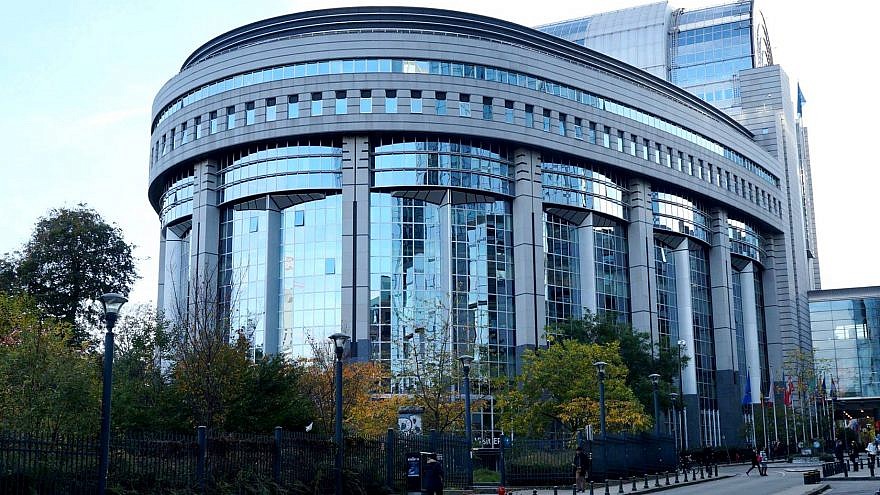An exhibition of caricatures seeking to expose the Iranian government’s human-rights abuses has been rejected for display at the European Parliament on the grounds that it is “too controversial.”
The Israeli Cartoon Project, established in partnership by the American Jewish Committee, reached out to Yesh Atid leader Yair Lapid almost a year ago for assistance in bringing the artistic statement to the E.U. Parliament in Brussels.
But E.U. officials replied only days ago that the exhibition was cancelled, only offering the explanation that “the exhibition is controversial.” The caricatures draw attention to human-rights violations against women, homosexuals, and Sunni and Baha’i minorities, as well as the repression, arrest and execution of political-opposition activists, underage marriage and other abuses.
Organizers decided to hold the exhibition despite the abrupt cancellation and will instead display the works near the parliament building in Belgium’s capital city.
“The decision by the E.U. to cancel the caricature exhibition makes the E.U. themselves a caricature,” said Lapid. “They failed in differentiating between killers and prey, between terrorists and victims.”
He expressed his support for the exhibit, which illustrates that “Iran is an Islamic terror dictatorship that believes in bloodshed.”
Daniel Schwammenthal, director of the American Jewish Committee’s E.U. office and its Transatlantic Institute, also slammed the outcome.
“It’s a decision that no doubt must have pleased the Majlis—that sham Iranian parliament—but it is no badge of honor for a Western parliament, particularly one that says that human rights, freedom of speech and the fight for democracy are among its main priorities,“ stated Schwammenthal. “The exhibition, we were told, would have damaged Parliament’s ‘dignity.’ With all due respect, I would argue that not this exhibition, but its censorship, is the real damage to Parliament’s dignity and image.”
The artists involved in the project expressed their desire to stand in solidarity with the Iranian people in a nonviolent way. Their hope is that freedom for Iranians would enable them to return to the rich and aesthetic culture they enjoyed before the rise of the Islamic Republic.


























